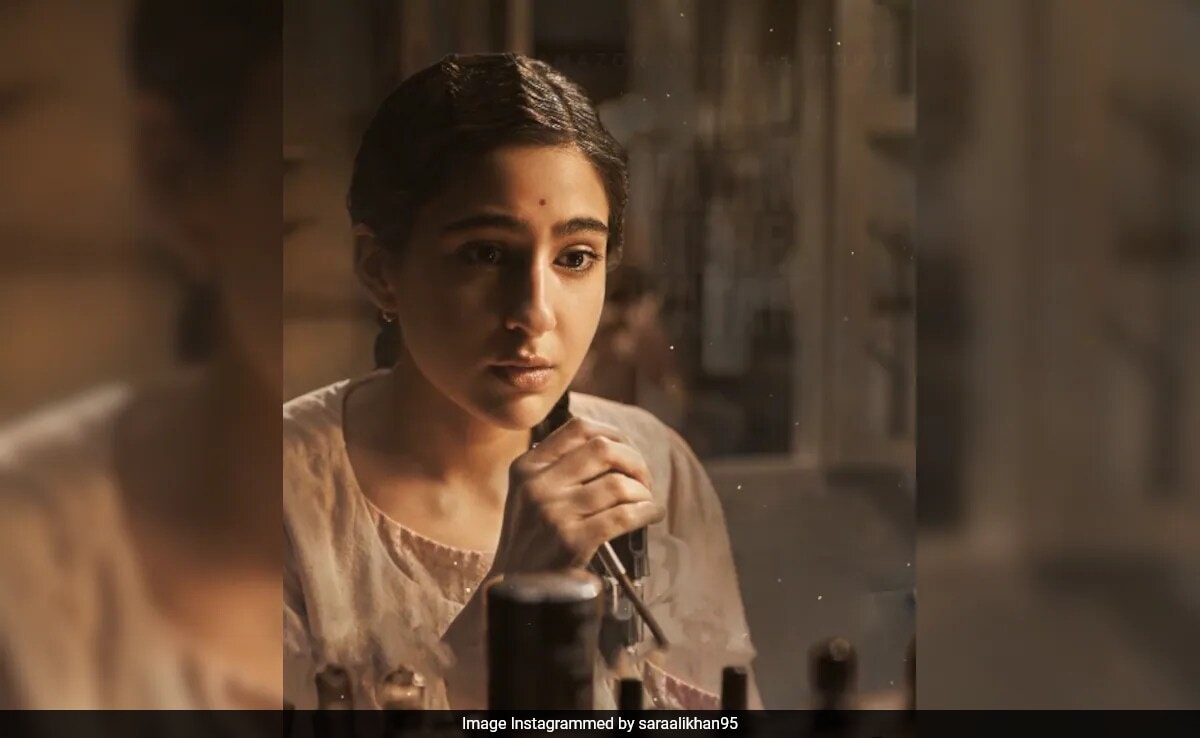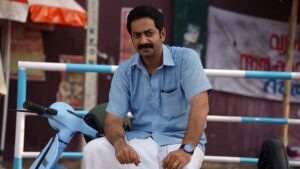Neither consistently riveting nor memorable

History and politics are increasingly serving as vehicles for shameless propaganda in the hands of some filmmakers in Mumbai, with fear. Aye watan mere watan. Fortunately, it turns out that the historical thriller produced by Theatrical Entertainment and Amazon’s MGM Studios doesn’t have agenda-tinted blinkers.
Streaming on Amazon Prime Video and featuring Sara Ali Khan as a khadi-clad freedom fighter against the might of the British, Aye watan mere watan Does not fall prey to excess as it brings to the screen a little-known but important chapter of India’s freedom movement.
As the freedom fighters in the film chant slogans, express unwavering anti-colonial intent and resist a brutal regime, Aye watan mere watan Anything other than a sharp gesture. The restraint the film shows in patriotism is admirable but it sadly doesn’t translate into something greater than the sum of its parts.
Aye watan mere watanDirected by Kannan Iyer who debuted a decade ago with supernatural horror films Ek Thi DayanNot as impactful as it should have been given that it lacks material that immediately resonates in an era where news is in a prolonged silly season.
Screenplay by Darab Farooqui, Aye watan mere watan Revolves around a period in the life of freedom fighter Usha Mehta. Sara Ali Khan, playing the lead, is very porcelain and sweet to convey the fierce determination of the extraordinarily dirty woman.
Inspired by Mahatma Gandhi’s “do or die” call as part of the Quit India movement, Usha Mehta, then just 22, clashes with her pro-Churchill judge-father (Sachin Khedekar), who sees no reason to side with the family. Congress started a secret radio station in 1942 to carry the message of independence to the masses.
The film covers a brief period of history. Usha’s defiance went on for months before the police arrested him and his accomplices. For violating the embargo imposed on radio stations during World War II, he was jailed for four years. But neither the fear of disciplinary action nor the possibility of her father’s wrath could stop the young woman.
Gandhi, played by Uday Chandra, appears in two scenes. its focus Aye watan mere watan Socialist leader Ram Manohar Lohia (Emraan Hashmi makes an extended guest appearance). Usha and her associates, Kaushik (Abhay Verma) and Fahad (Sparsh Srivastava) operate Congress Radio from a secret location and evade the law as long as they can while the latter’s voice is heard repeatedly on the airwaves and elsewhere.
Hindi cinema never gave Lohia his due. Giving her due pride of place in Usha Mehta’s story, Aye watan mere watan Provides audiences with a significant piece of history that has not been sufficiently highlighted until now. Hashmi, an actor who thrives effortlessly, pulls off Lohia without resorting to overly flashy methods.
While the performances are weighty enough, the film seems to struggle with pace and depth. The cloak-and-dagger drama is not so much as it ideally should have been as a thriller cast in a conventional mold, complete with action scenes and chases. Aye watan mere watan It lacks the inherent power to create a sense of real tension and danger.
The film equates air waves with wings. Spread your wings, Mahatma Gandhi advised his followers. That’s exactly what Usha wants to do – seek freedom with the help of a radio signal that she transmits “from somewhere in India”.
Mumbai police inspector, John Lear (Alex O’Neill), is on the trail of the people behind the secret radio station. The film’s climax (part of which is revealed in the brief introduction) centers around a raid on a building that houses a secret broadcasting set-up.
A policeman points a gun at Usha as she walks down the stairs. The sequence cuts to a scene where the protagonist, as a 10-year-old girl, is in an open-air classroom in Surat where a teacher explains to her the significance of the freedom struggle.
The staging is a bit stuffy and the emphasis is on dialogue that sounds more like a lecture than a conversational exchange. But a couple of points are that Aye watan mere watan has contemporary relevance and deserves mention.
In one scene, Usha claims that news empowers people. He made this statement in response to a colleague’s lament that the newspapers of the day were spreading lies. What we see and think, he adds, is being controlled by these sources of information. Official channels of communication are spreading fake news, says Usha, and hence it is imperative to convey the truth to the people.
In another sequence, Usha and her comrades discuss the pitfalls of andha-bhakti (blind obeisance), citing the example of Lohia who, despite idolizing Jawaharlal Nehru, thinks nothing of criticizing him when the need arises.
At another juncture in the film, Lohia is again quoted to emphasize that a fight against a tyrant is not necessarily waged in order to win over him. One fights a tyrant because he is a tyrant. Aye watan mere watan Neither projects patriotism as an end in itself nor portrays it as the solution to all problems. It goes beyond the narrow confines of today’s concepts.
Aye watan mere watan Addresses themes of love and revolution, freedom and unity, truth and realism with an undercurrent of rebellion that gives it an edge and elevates it above the history that it has created in the service of telling the story of the unsung heroes of India’s freedom struggle.
First-rate production design ensures that timing details are not confused. Director of photography Amlendu Chowdhury lends an evocative quality to the film’s visual palette.
Aye watan mere watan Makes his points with clarity and directness. It tells a story that has meat to it, but the storytelling style that the film adopts makes it significantly less consistently disturbing or memorable.



